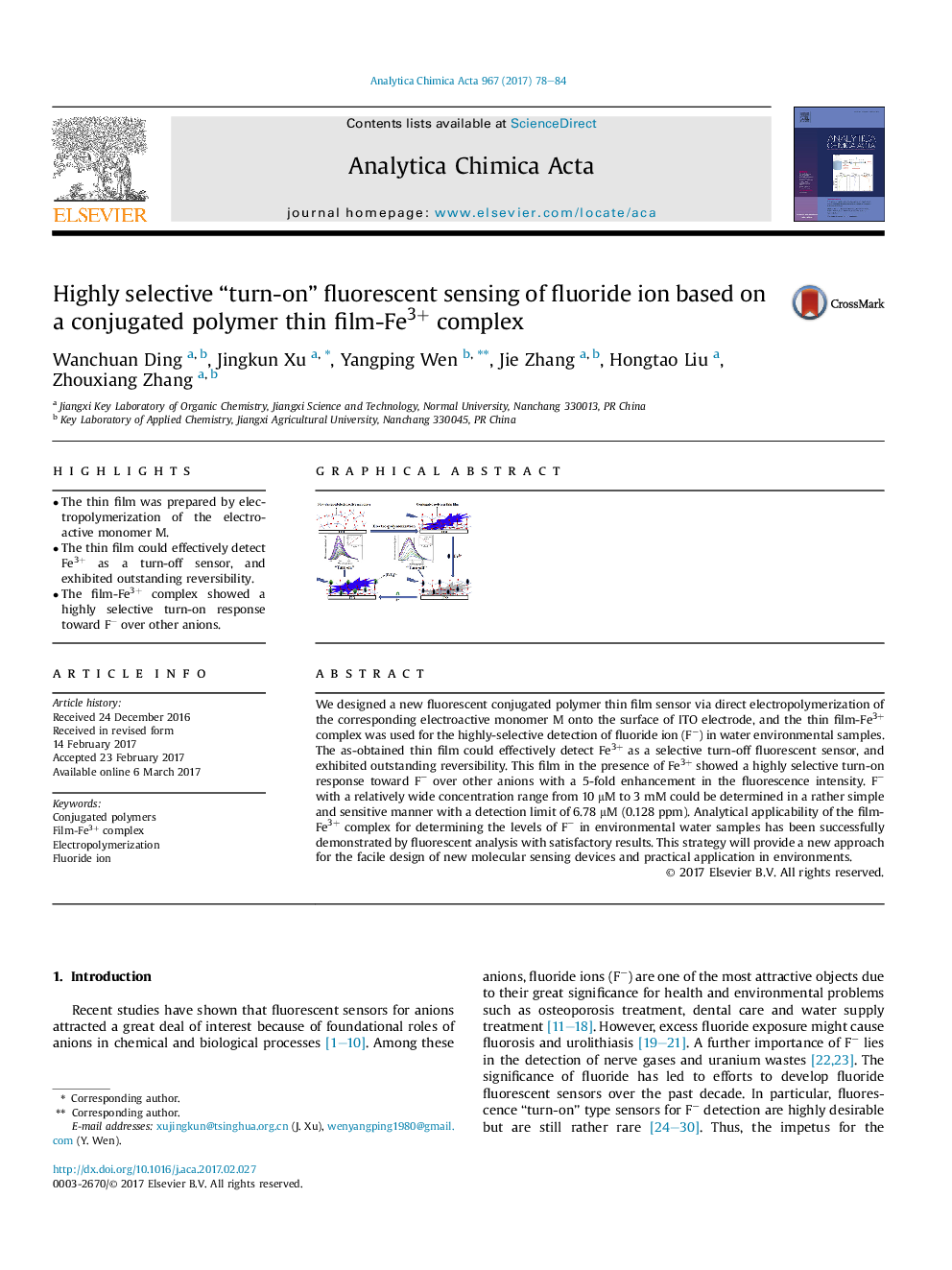| Article ID | Journal | Published Year | Pages | File Type |
|---|---|---|---|---|
| 5130942 | Analytica Chimica Acta | 2017 | 7 Pages |
•The thin film was prepared by electropolymerization of the electroactive monomer M.•The thin film could effectively detect Fe3+ as a turn-off sensor, and exhibited outstanding reversibility.•The film-Fe3+ complex showed a highly selective turn-on response toward F− over other anions.
We designed a new fluorescent conjugated polymer thin film sensor via direct electropolymerization of the corresponding electroactive monomer M onto the surface of ITO electrode, and the thin film-Fe3+ complex was used for the highly-selective detection of fluoride ion (F−) in water environmental samples. The as-obtained thin film could effectively detect Fe3+ as a selective turn-off fluorescent sensor, and exhibited outstanding reversibility. This film in the presence of Fe3+ showed a highly selective turn-on response toward F− over other anions with a 5-fold enhancement in the fluorescence intensity. F− with a relatively wide concentration range from 10 μM to 3 mM could be determined in a rather simple and sensitive manner with a detection limit of 6.78 μM (0.128 ppm). Analytical applicability of the film-Fe3+ complex for determining the levels of F− in environmental water samples has been successfully demonstrated by fluorescent analysis with satisfactory results. This strategy will provide a new approach for the facile design of new molecular sensing devices and practical application in environments.
Graphical abstractFigure optionsDownload full-size imageDownload high-quality image (273 K)Download as PowerPoint slide
